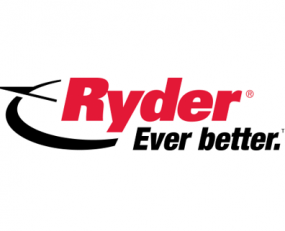
A 276.5% y-o-y growth in operating profit for the Supply Chain Solutions (SCS) division of Ryder Transportation Systems helped offset an overall 43.3% first quarter drop in earnings to US $114m. Overall revenue in the quarter grew 5% to $3,098m.
Across the company:
Where the FMS and DTS divisions both recorded sharp falls in profits, SCS had triple digit growth. The division saw positive growth in most vertical sectors:
Ryder CEO Robert Sanchez said the company “Delivered solid first quarter results amid a challenging freight environment by continuing to execute on our balanced growth strategy.” He continued, “Our strong balance sheet continues to provide us with capacity to fund organic growth, share repurchases and strategic acquisitions”.
Cardinal Transportation boosts DTS revenues
Much of the organic growth experienced by the SCS division was down to two acquisitions in 2023. Dedicated Transportation Solutions’ revenues went up due to an acquisition, while its earnings fell in a large part due to the integration of the new company.
In February 2024, the DTS division acquired Concord, NC based Cardinal Transportation, a regional trucking company that Ryder claimed will “Further advance [the company’s] strategy to accelerate profitable growth in its Dedicated business.”
At the time, Ryder’s senior vice president of DTS, Steve W Martin said, “With complementary contractual services in many of the same industries, we gain greater economies of scale and we can provide even more flexibility for transportation networks when seasonality and fluctuating demand inhibit the continuous use of resources.”
FMS hits by cyclical downturn
A core strategy for Ryder has been to increase the proportion of its revenues from DTS and SCS while reducing the proportion of revenues contributed by Fleet Management Solutions business. In 2018, 56% of revenues came from FMS, falling to 40% in 2024. The division has been hit by a drop in used truck prices and a fall in rental fleet utilisation, helping earnings and revenues to fall considerably in the quarter.
Robert Sanchez seemed confident that the long term efforts to transform the company have been successful. The CEO continued, “Throughout the current freight downturn our transformed business model has consistently outperformed prior cycles.”
Ryder’s leadership expect a recovery in omnichannel retail volumes and an improved road freight market. Sanchez concluded, “We remain confident that the changes we’ve made to the business will continue to generate higher highs and higher lows while positioning us to benefit from the cycle upturn.”
Author: Richard Shrubb
Source: Ti Insights
Supply chain strategists can use GSCi – Ti’s online data platform – to identify opportunities for growth, support strategic decisions, help them stay abreast of industry trends and development, as well as understand future impacts on the industry.
Visit GSCI subscription to sign up today or contact Michael Clover for a free demonstration: [email protected] | +44 (0) 1666 519907